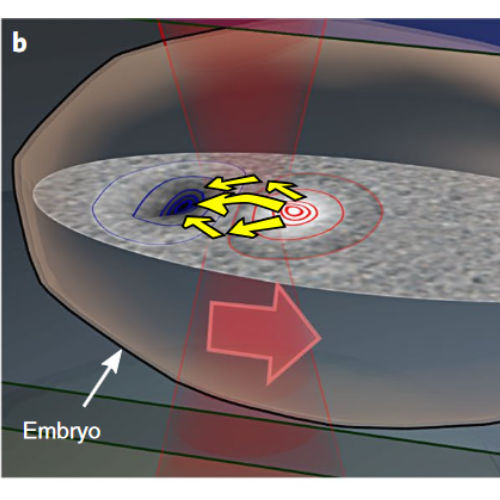Non-invasive perturbations of intracellular flow reveal physical principles of cell organization.
Recent advances in cell biology enable precise molecular perturbations. The spatiotemporal organization of cells and organisms, however, also depends on physical processes such as diffusion or cytoplasmic flows, and strategies to perturb physical transport inside cells are not yet available. Here, we demonstrate focused-light-induced cytoplasmic streaming (FLUCS). FLUCS is local, directional, dynamic, probe-free, physiological, and is even applicable through rigid egg shells or cell walls. We explain FLUCS via time-dependent modelling of thermoviscous flows. Using FLUCS, we demonstrate that cytoplasmic flows drive partitioning-defective protein (PAR) polarization in Caenorhabditis elegans zygotes, and that cortical flows are sufficient to transport PAR domains and invert PAR polarity. In addition, we find that asymmetric cell division is a binary decision based on gradually varying PAR polarization states. Furthermore, the use of FLUCS for active microrheology revealed a metabolically induced fluid-to-solid transition of the yeast cytoplasm. Our findings establish how a wide range of transport-dependent models of cellular organization become testable by FLUCS.

- Nat Cell Biol. 2018 Mar;20(3):344-351
- 2018
- Imaging Technologies Development
- 29403036
- PubMed
Enabled by:
